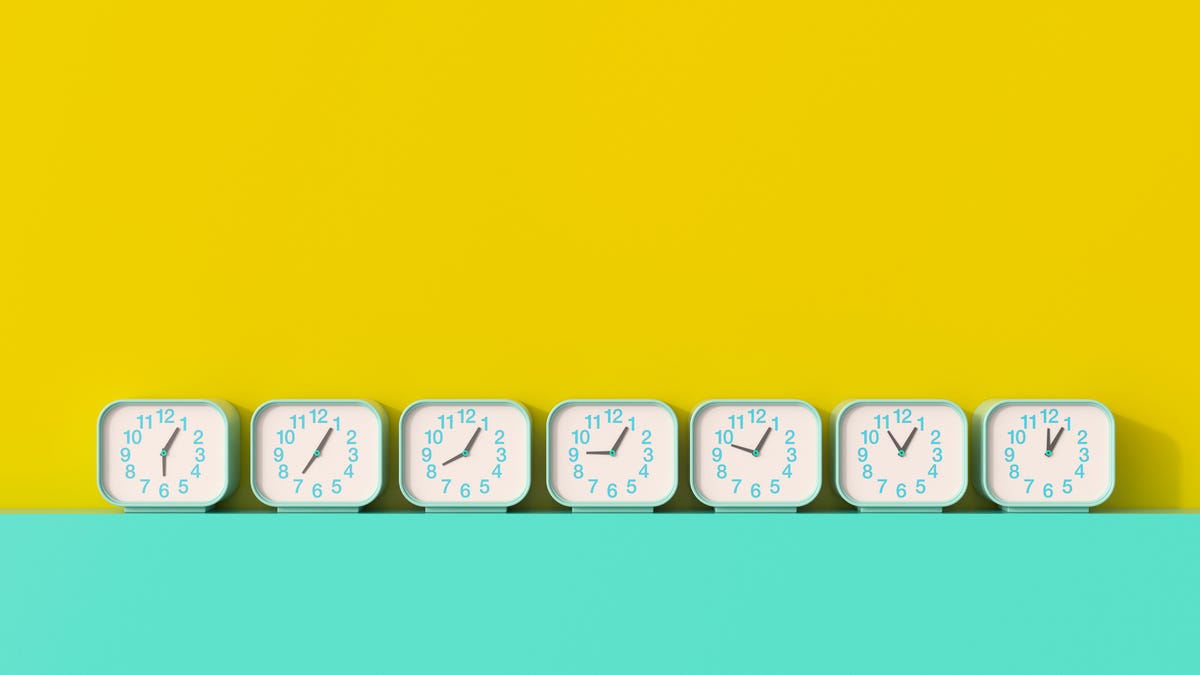 Why You Can Trust CNET
Why You Can Trust CNET Don't Drag Your Feet. Here's 7 Ways to Stop Procrastinating (Today)
It's a hard habit to break, but these tips might do the trick.

Stop procrastinating and give yourself more time to work on tasks.
Procrastinators know the term "I'll start tomorrow" all too well, but before long, anxiety creeps up and worsens as your deadline nears. It's a strange phenomenon we put ourselves through, as we know it often causes more harm and anxiety. The word procrastination is derived from the Greek word akrasia, meaning "doing something against your better judgment."
A survey by the Procrastination Research Group found that 46% of participants felt like their procrastination had a major negative impact on them. Whether it be doing your taxes, a school project or a new health journey, the procrastination bug bites the best of us, and we put off our to-do list (even though we know we shouldn't).
Nip this bad habit in the bud and kick off the new year with a new, procrastination-free start. Below, find out possible reasons behind our procrastination habits and learn seven tips to help you feel more motivated.
For more help on quitting bad habits, here are tips to quit drinking that actually work and how to successfully quit smoking.
Why do we procrastinate?
There isn't one reason why someone procrastinates, and many of us are guilty. A 2014 study found that 20-25% of adults worldwide are procrastinators. Research links procrastination with conditions like depression, low self-esteem and ADHD, but others argue that's not always the case.
Procrastination can result from avoiding a task that causes negative emotions, your own mental habits or a lack of self-discipline. A professor at the University of Calgary told The New York Times that it's a self-harm method. Although you feel more anxiety after procrastinating and know the consequences, you still do it.
Take control of your procrastinating habits and consider trying the following tricks.
How to stop procrastinating (right now)
Simplify your tasks
Break down an overwhelming task into a more managble checklist
If you're overwhelmed by a daunting task, break it down into smaller, simpler tasks and work through them one step at a time.
For example, if you're putting off cleaning a messy house, break it down by room or tasks. It might look something like this:
- Clean the dishes.
- Wipe down counters and dust.
- Sweep.
- Vacuum.
- Dust.
What seems like a large task is broken up into more manageable cleaning, and you feel more accomplished as your home gets tidier and tidier. Making a checklist and crossing out the tasks as you complete them is also visually effective. For me, it helps me feel more relieved and organized.
Make a habit of dedicating time
If you have a large-scale task you're putting off that'll take up a significant amount of time, get a head start on it early and make a habit of dedicating 20-30 minutes to it each day. You chip through your task one chunk at a time until you've spent 2 to 3.5 hours on it a week. This trick makes it feel less overwhelming and saves you from cramming a week's worth of work in one or two days.
Plan ahead
Don't go into your day not knowing what's ahead -- be prepared. During your bedtime routine, organize the next day by writing down a to-do list with the most important tasks you need to accomplish. If you're intentional about what you must complete, you're more likely to do them. Journaling also helps relieve anxiety and makes your days feel less overwhelming.
Be self-aware of distractions
Know your distractions and remove them from your environment when you dedicate time to your task or work.
- If you know you don't work well with a good TV show playing in the background, turn on soft music or instrumentals as background noise.
- If you have roommates and find it challenging to finish a task while you're around them, head to a local coffee shop or take advantage of noise-canceling earbuds to help garner focus.
- If you know you're more productive in the morning or early afternoon, dedicate that time to working on tasks that require more focus.
Create your own deadlines
So you have a deadline and a bad habit of procrastinating. This calls for multiple deadlines. If your boss, teacher, co-worker or superior gives you a due date, set a few of your own in advance so you make good progress in completing your goal.
Set timers
If you struggle with getting started on a task, set multiple alarms as constant reminders to get going. It's an audible signal that encourages you to begin and helps prevent you from being caught up in distractions.
Reward yourself
Celebrate your wins. You deserve to feel accomplished, especially after completing a daunting and important task. Even small wins are worthy of a reward. It can also make you associate completing a goal (and the work that goes into it) with a more positive connotation, making you less likely to procrastinate.

